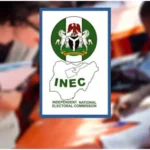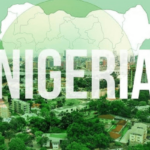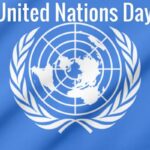Ahead of the 2023 General Election, the National Institute for Strategic Studies (NIPSS) has commenced sensitization efforts aimed at mobilising political party leaders and other stakeholders to deepen women participation in the nation’s political process.
Speaking on Monday in Abuja at a One-day stakeholders’ engagement on “Strengthening of Women in Political Process in Nigeria”, organised by NIPSS, European Union and others, the Acting Director General of the institute, Brig. Gen. Chukwuemeka Udaya (Retd), regretted that notwithstanding the existence of the Nigerian Gender policy, participation of women in the political process at various levels in Nigeria is still very low.
- Atiku condemns killings of travelers in Plateau
- PODCAST: Jos Killings: What Is Happening Beyond The Curfew
According to him, political parties are to be blamed for stalling efforts at boosting more women participation in the nation’s politics and governance.
“Indeed, political parties in Nigeria have provisions in their constitutions, guidelines and rules to ensure inclusion of women in the scheme of things, but in practice these provisions are either disregarded or utterly breeched,” Udaya said.
Udaya said that the findings of a baseline conducted by NIPSS-PPLDC in 2018 on the extent laws and policies on inclusivity and gender Code of Conduct and other gender friendly declarations, shows that notwithstanding the existence of the Nigerian gender policy, the Independent National Electoral Commission (INEC) gender policy, the participation of women in political process at various levels in Nigeria was very low.
While presenting a paper titled, “The Imperative of Women’s Representation in Nigeria’s Political Leadership”, former Presidential Candidate of KOWA Party in the 2015 general election, Prof. Remi Sonaiya, said that the continued abysmal rate of participation of women in politics of Nigeria is becoming very embarrassing.
She said, “The facts stare us in the face: Both in elective as well as appointive positions, Nigerian women have never reached the mark of 10% representation; it has always been between 5% and 7% – a far cry from the National Gender Policy’s recommendation of 35%. According to early 2019 statistics, our country equally ranks far below the African average of 23.4% as well as the West African average of 15% in terms of women’s representation in politics.”
Sonaiya also said that the 2019 UN report showed that currently, Nigeria has one of the lowest rates of female representation in parliament across Africa, and globally, ranking 181st out of 193 countries.
Also, the Chief Executive Officer, Nigerian Women Trust Fund (NWTF), Ms. Mufuliat Fijabi, said the monetisation of the nation’s political system is harmful to women.
“We have been assisting women to be the best either as elected or appointed representative in the nation’s political terrain and process. However, when you look at the cultural perspectives, Nigerian women still remain challenged, which does not support 100 percent as expected. One can see that the women still have lots to overcome as leaders in their own rights.
“The monetisation of the nation’s political system, is not something that is helpful and that as the NWTF, we are talking to the right persons in the democratic process that it should not be politicised but should be with commitment and focus on development that would be beneficial to all,” she said.
Council wants day-time meetings to boost women participation
On her part, President of the National Council for Women Society (NCWS), Dr Gloria Laraba Shoda, represented by the President, South East Professional Women Association of Nigeria and Diaspora, Dr. Nwanganga Ibeh, stressed the need for political meetings to be held in day time to enable married female politicians effectively participate in politics.
She noted that because of our cultural background that does not allow women to be out late at nights, they were always not present at night political meetings where important decisions were taken.
“In our culture, we know that women are not supposed to stay out late or come home very late, most marriages pack up when women become very actively involved in politics. And we know that when they do not turn up for these night meetings where important decisions are taken, they are just left off. Political meetings should hold when it is reasonable for a married woman to attend,” she said.
The Chairman, Inter-party Advisory Committee (IPAC), Dr Leonard Nzenwa, assured that going forward, women would have a better deal in politics because they would always be carried along.
He, however, added that most of the political request made by women, needed constitutional backings to actualise them.
He said, “Most of the things being requested by women need constitutional backings, you don’t just talk of reserving particular positions for women, you have to look at the constituency and other things.
“It is not only a one party thing, it is an inclusive thing and that is why we are asking the National Assembly to make these provisions where it will be possible for all parties to comply with. If it is going be seven sits that will be kept aside for women, all the parties will comply.”




